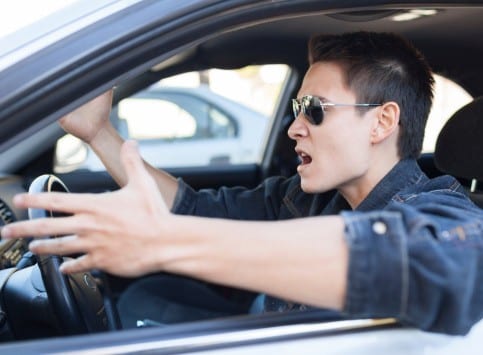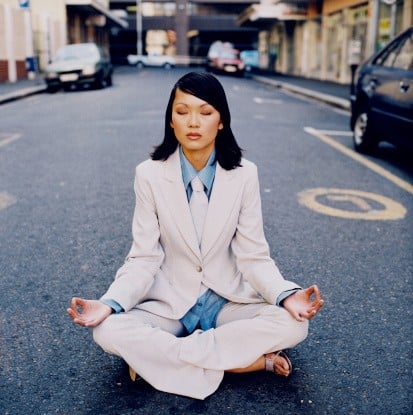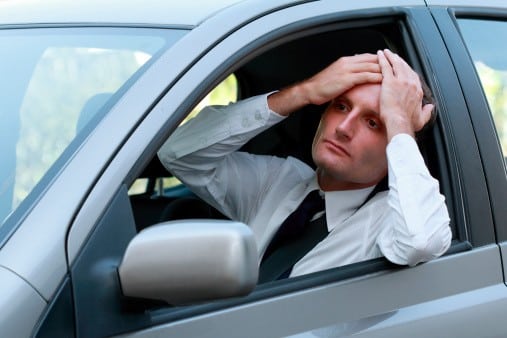How often do you find yourself sitting in a bumper to bumper nightmare with anxiety-induced perspiration emanating from your brow? Unfortunately, traffic borne frustration is a reality most Americans have to deal with on a daily basis.
According to the 2012 Urban Mobility Report performed by the Texas A&M Transportation Institute, the average American was delayed 38 hours because of bad traffic in 2011. And if you live in Los Angeles, studies by the traffic information provider INRIX put this average at 59 hours in 2012.
Regardless of wasted time, the frustration this kind of daily inconvenience produces can have detrimental effects later in life. Scientists at the University of California Irvine published the results of a study early in 2013 that involved 711 participants spanning from 25 to 74 years in age.
Traffic has long term emotional affects
The evidence showed that daily, seemingly trivial negative emotions, caused by minor events like arguments or bad traffic, could predict emotional distress 10 years down the line. This included diagnoses of depression and anxiety. Not losing your temper on the roadway is important to more than just having a good day.

Look closely at this language, however. It’s everyone else who is driving aggressively. Not me. Oh no, never.
In his article “Dealing with Stress and Pressure in the Vehicle,” however, Dr. Leon James of the University of Hawaii asserts that many drivers are oblivious to their own bad habits. “Surveys typically show that 70 percent of drivers report being a victim of an aggressive driver, while only 30 percent admit to being aggressive drivers.
This suggests that most drivers overlook their own faults and overestimate their competence.” You may claim to never get aggressive on the road, but if you’ve ever gotten frustrated, you are at least susceptible.
James explains; “…frustration begets anger, which leads to feelings of hostility that are elaborated in mental violence and ridicule, and finally acted out in aggressive behavior.”
Relax and enjoy the ride
How, then, can one overcome frustration in traffic, bypass the slippery slope to aggressive driving and not end up a depressed and anxious disaster 10 years from now? The answer, it seems, is self-awareness while on the road.

This awareness or new insight provides an opportunity or occasion for self-modification of one’s traffic behavior from anti-social to peaceful and altruistic.” The idea is that by being mindful of how one reacts to stressful stimuli, a person can alter these reactions for the better.
Frustration leads people to act automatically in ways they never would otherwise. By reflecting, you look back on how you told that lady in the BMW to die a slow death after she almost hit you and think, “Huh. Maybe that was a little bit unnecessary. Maybe she just made a little mistake, like everyone does.”
By maintaining a sense of compassion for other drivers, the deep hatred of other humans typical of your commute can be replaced with a sense of solidarity. When this self-witnessing becomes habit, a person gains greater control over their reactions and can avoid frustration even before it begins.
Put yourself in their shoes
While stuck in traffic, it may seem like all these people are in your way and are just heartless, aggressive drivers, but give it a second. Maybe they are just as frustrated as you. Maybe, they too are human beings.
It doesn’t have to be dog-eat-dog out there. If anything, traffic is a moment of intense human connectivity. It is a great equalizer, like death, sparing neither the rich nor poor, old or young.
By learning to reflect the way James outlines, traffic can be changed from a daily inconvenience to a ceremony of almost spiritual connectivity. The next time frustration is getting the better of you, take a deep breath and consider how absolutely human this experience is.
You are a droplet in the river just like everyone else. Don’t get frustrated. Revel in it.
Learn how to “Hack Your Commute” with this fun infographic from our friends at Pony Parts…


